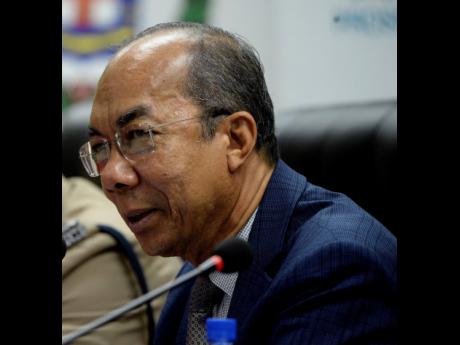Chang urged to guard against misuse of wiretapping
Opposition Spokesman on National Security Fitz Jackson has cautioned against abuse of the amended Interception of Communications Act (2002), calling on Minister Horace Chang to guard against potential breaches.
“It is very important. I want it to be said, if the minister gives the assurance that this is not taking place. It is a worrying situation. We have heard about the engagement of Israeli companies with such capability to do such activities,” he said.
When challenged on the assumption, Jackson said he was prepared to say what he knows, telling parliamentarians that there were state engagements with some companies for which the details and extent of their activities remain unknown to many.
“But all of us have a duty to protect the privacy of every Jamaican, and whenever that privacy is being breached, there are parameters around which that can take place, as is being provided for in this order, which we are approving. We have no problem with information being accessed this way,” Jackson said.
“We offer no objections, but we have strong concerns about what is in operation outside of what this order provides for,” he added.
On Tuesday night, Parliament approved an order tabled by Chang to amend the Interception of Communications Act (2002), giving authorisation to a cadre of designated high-ranking officers of the Jamaica Constabulary Force (JCF) and the Jamaica Defence Force (JDF) to access real-time information in critical situations.
POTENTIALLY DANGEROUS
Hailing the development as an important aspect for crime detecting in the arsenal of the security forces, Jackson said what remains of interest to many is what other forms of information-gathering capabilities exist.
“This authority is not a light one. It allows the State to intrude into private conversations, business conversations – conversations of all types – and, as you know, Mr Speaker, information in the wrong hands can be very dangerous,” he said.
According to him, the act was promulgated at a time when the prevailing technologies were essentially through the network providers.
That has now changed dramatically with a plethora of other sophisticated eavesdropping devices available to individuals and state entities from which to glean information from unsuspecting targets.
Section 16 of the act speaks to the disclosure of telecommunications data pursuant to Subsection 16(1), or the minister of national security may prescribe any person as a designate for the purpose of Section 16 by order subject to affirmative action.
“Access to real-time information becomes essential in the work of these agencies, where preserving the lives of Jamaicans and protecting lives in extreme situations, in particular, like kidnapping, are encountered,” Chang said.
“In the current situation, only the minister is entitled to seek immediate, real-time information. The normal course of acquisition indicates that you seek a warrant then proceed to get the information,” he added.
Those now authorised to access real-time information under the act are the chief of staff of the JDF, head of the Military Intelligence Unit of the JDF, the commissioner of the JCF, the assistant commissioner in charge of the Narcotics Unit of the JCF, the assistant commissioner in charge of the National Intelligence Bureau of the JCF, and the director general of the Major Organised Crime and Anti-Corruption Agency.
In 2019, Prime Minister Andrew Holness had signalled that his administration was open to establishing a framework for cooperation with Israel on national-security issues such as cybersecurity.

